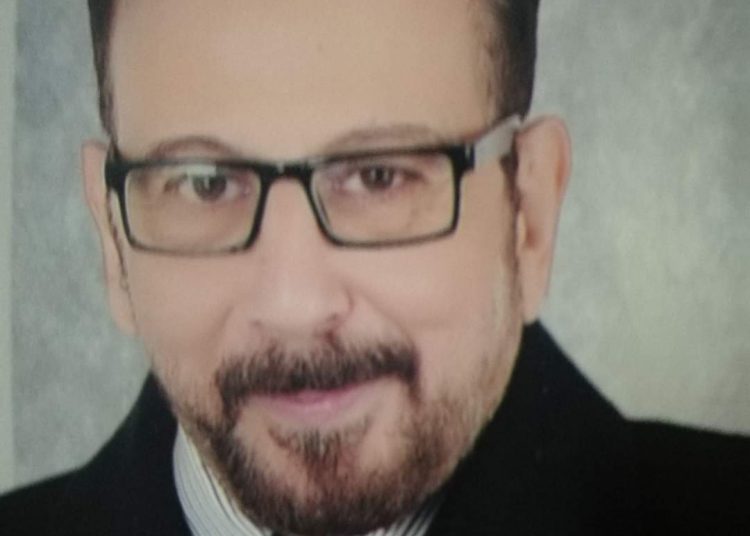Abdelmonem Fawzi
Illicit capital flight is a problem with a large magnitude in Africa.
Every year, an estimated $88.6 billion, the equivalent of 3.7% of Africa’s GDP, leaves the continent in an illicit capital flight, according to UNCTAD’s Economic Development in Africa Report for 2020.
This grand larceny is facilitated by some of the world’s biggest accounting and consulting firms, whose executives know how to remain just within the law.
Annually, Africa is a net exporter of capital.
Illicit outflows exceed the inflows of official development assistance to Africa, which is valued at $48 billion every year and foreign direct investments coming to the countries of the continent, which are valued at $54 billion every year, in the light of 2013 to 2015 official figures.
Malaysia can be a good example of how states should address a problem like this one.
Not long after assuming power, the late Malaysian prime minister, Mahathir Mohamad, ordered a raid on the properties of his predecessor, Najib Razak.
The raid brought Razak at the centre of accusations, including the criminal breach of trust, money laundering and the abuse of power.
He was found guilty of a number of charges of corruption.
According to Reuters, the Malaysian government wants to recover $800 million from J.P. Morgan (Switzerland) Ltd, $1.11billion from Deutsche Bank (Malaysia), and $1.03 billion from a unit of Coutts – in addition to interest payments from all these firms.
The report and proposals came hard on the heels of a number of scandals that rocked various accounting firms.
It is clear that those who have profiteered from corruption need help in carrying out the theft of their ill-gotten gains and, most importantly, in squirreling them away in overseas jurisdictions, often using legal structures.
It is also clear that world-class experts within advisory firms should often be able to identify corrupt transactions conducted by the principals behind the corruption.
The good news is that the African Union High-Level Panel on Illicit Financial Flows (HLP-IFFs) from Africa, under the leadership of Thabo Mbeki, the former president of the South Africa and chair of the HLP-IFFs recently engaged members of its Working Group on Implementation of the Common African Position on Asset Recovery (CAPAR) to review achievements made to this day and discuss further actions in supporting African Union member states to recover their stolen assets from foreign jurisdictions.
Led by barrister, Akere Muna, who is also the Chairman of the International Anti-Corruption Conference Council, the working group’s discussion featured follow-up presentations on issues discussed in the last meeting of the group in July 2021.
They included country level activities, the side-event held in Sharm el-Sheik, during the 9th session of the UNCAC Conference of State Parties (9th CoSP) in December 2021, and the implementation framework for CAPAR priority activities.
Participants discussed the development of a revised work plan for the dissemination and implementation of CAPAR at the country level, resource mobilisation to support member states in implementing the CAPAR, and the development of national level and continental legal and technical frameworks for negotiating the return of African assets, including the proceeds of corruption, tax evasion, illicit enrichments, and artifacts, consigned to foreign jurisdictions.
The Working Group on Implementing CAPAR is one of the three working groups of the HLP-IFFs.
It is currently co-chaired by Bankole Adeoye, commissioner for political affairs and peace and security at the African Union Commission, and Jean Louis Andriamifidy, chair of the African Union Advisory Board on Corruption.
The other two working groups are the Working Group on the Trust Fund to Support the Implementation of the IFF Agenda and the Working Group on the National Level Responses and Governance of Natural Resources.
As a result, some African countries have succeeded in recovering some of their stolen assets from foreign jurisdictions, including Ethiopia, Nigeria and Mali, and more are at different stages of the return processes.
With the adoption of CAPAR by the Assembly of African Union Heads of State and Government during their 33rd Session in February 2020, African countries have started receiving support at the continental level through the HLP-IFFs to facilitate the return of more of these assets.
The continental work plan and framework being developed by the CAPAR working group will facilitate the implementation of coordinated strategies to further ongoing efforts by several African governments.
The meeting underscored the importance of the work of the HLP, welcomed the coherent African response to the challenges of IFFs, and the need for AU member states to actively participate in the ongoing national assessment processes.
Regarding the 1st African Fiscal Policy Forum, the panel shared the concerns of African and other developing countries with respect to the challenges of the international tax reform processes.
Accordingly, the HLP encouraged the CoDA Technical Committee on Domestic Resource Mobilization to continue the dialogue series to enable African countries to make informed decisions.
As a result, this will help, not only to return state patrimony to African countries, but also in creating incentives for global financial centres to be cleaner.






Discussion about this post